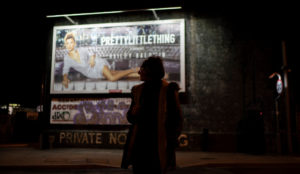The “pumping room” at Ambrosia Labs in Cambodia is an airless and dystopian space. I see 20 or so women packed in, being “milked”. Their tops are off and they all have tubes attached to both nipples; their breast milk can be seen flowing through tubes into containers. They would do this for hours at a time, for six days a week. Above the noise of the pumps I could hear the cries of distressed babies and toddlers. They went hungry while the milk meant for them was extracted for export.
Once collected, the milk was transferred into plastic bags which were sealed, labelled and stored in a large freezer, ready to send to other mouths. For this precious liquid, the women were paid 50 cents an ounce, while those running the coercive operation were making a fortune.
Global demand for human breast milk has never been greater. Breast milk banks and peer-to-peer sharing have long existed, for mothers in need, but now it is increasingly being sold for profit. And not just to parents wishing to feed babies. There is a dark side to this trade, as there always is when human body parts and products are brokered.
In the UK, the commercialisation of breast milk is relatively new and was initially philanthropic in intent. Best Milk, one online provider, offered its product to premature, surrogate, adopted or “exceptionally hungry” babies; it asserted that babies fed on breast milk, rather than formula, have an improved IQ, a lower risk of cancer and chronic conditions, and are less likely to develop food intolerances and allergies. The website has now ceased trading.
NeoKare, meanwhile, Europe’s first breast milk processing plant has been going strong in England since March 2020. It offers, according to its website, “safe and screened breast milk products for when a mother’s own milk is not available. Invest in your baby’s future today.” However, at £45 for six 50ml bottles, it doesn’t come cheap. At two months of age, a baby should drink 120-150 ml every 3-4 hours, which means feeding will cost £112 per day. And buying breast milk online comes with risks. In the UK and Ireland, the market is unregulated, which leaves parents vulnerable to buying substandard or dangerous milk for their child. One study from 2015 found that 93% of breast milk sold online contains detectable levels of bacteria, because of the use of non-sterile equipment to express or store the milk. Babies who drink it can be exposed to Hepatitis B and C, HIV and syphilis.
Parents do have some non-commercial options. The NHS has milk banks — but there are only 13 for the whole of England and Wales. To stop the gap, Dr Natalie Shenker, an NHS-trained doctor, cofounded, with Gillian Weaver, of the Human Milk Foundation (HMF), the only charity in the UK dedicated to supplying breast milk to those ineligible for donor milk such as mothers with cancer. “We set up HMF because we knew that with the closing of NHS funded milk banks, businesses would soon be set up,” says Shenker. “And there are clear potential harms involved in paying a woman for producing milk.”
I’ve seen those harms with my own eyes. As I discovered during that trip in 2017 to Cambodia, those women being milked like cattle were part of a coercive business model developed by pimps in Phnom Penh: these men would advertise pregnant women from their brothels to breast milk and pregnancy fetishists, and then sell their milk mail-order style online.
This is booming international business: I have seen lactation “services” advertised by a New Zealand brothel, and spoken to trafficked West African women in Pisa, Italy, who told me, “Italian men like us pregnant and with our big breasts full of milk.”
Lactation and pregnancy pornography is an upsettingly fast growing genre. Last year’s Channel 4 documentary, Breastfeeding My Boyfriend, shed some light on the phenomenon. Aside from hearing the stories of two couples that practice “erotic feeding,” while livestreaming on porn sites, viewers were also introduced to a young woman that goes by “Milky Mummy,” a mother of three infants, who made £30,000 selling lactating videos online.
As a result, when breast milk is for sale, it’s not just women who buy it. As Karleen Gribble, an expert in infant feeding tells me: “In wealthy countries, little of the milk that is sold is used to feed babies. Mostly, milk for infant consumption is given without direct payment. Those buying milk tend to be adult men who want it to assist with bodybuilding or for sexual reasons.”
Those poor, desperate women selling their milk for such a pittance in Cambodia had no idea that it was as likely to go to male fetishists and weightlifters as it was babies.
In an attempt to understand why an adult man would buy such services, I spoke to someone who hides behind the pseudonym “Breast Milk Enjoyer”. He told me he was introduced to the concept by the online bodybuilding community, who drink breast milk for the human growth hormone IGF-1 and because it is rich in probiotics. “A friend gave me a bag of his wife’s frozen milk to try, to see if I liked it before making it a staple,” he told me. “It was much sweeter and waterier than I expected, almost sickly. But I persisted and found, it to be an acquired taste which I began to appreciate.”
Bodybuilders will pay a premium for breast milk from women who eat organic products, avoid seed oils, and eat healthy fats — as it’s unregulated, it can even be sold by individuals on Facebook. One male breast milk aficionado claimed on Twitter that “his women” “are on an elite diet so I know that the quality is head and shoulders above other human breast milk suppliers”.
Breast Milk Enjoyer also tells me that “the online right-wing bodybuilding community, which I am part of, sources almost entirely from wives of men in the sphere or women who are adjacent to it. I am very confident that having these personal links means we are sourcing the breast milk ethically.” He also insists that his consumption is not sexual. “I very much enjoy it now. It’s not a fetish thing, I’ve just had so much of it over the years that any taboo is broken. Once you go frozen, you must try fresh off the tap.”
He does recognise, though, that there is an extreme end to the industry — without realising that he is part of the problem: “You have no idea of the state of our inboxes,” he laments. “Women will advertise a full-service milking experience, complete with costumes, for thousands of dollars.”
He can’t see that the commodification of women — whether this be the trade in their breast milk, the renting of their wombs, or the prostitution of their bodies — is always marketed as altruism, when in fact it is all about profit. And exploitation and abuse of disadvantaged women is at the core of all these transactions.
I have seen lactation fetishists refer to the women who provide the milk as “cows” on message boards. In Cambodia I heard babies and toddlers crying from hunger while the milk meant for their mouths was extracted for export. And I’ve heard grown men moan about lactating women clogging up their inboxes. It beggars belief that we are happy to commercialise maternal breastfeeding and let the milk snatchers make their own rules, rather than cracking down on yet another cynical exploitation of women and their bodies.
Disclaimer
Some of the posts we share are controversial and we do not necessarily agree with them in the whole extend. Sometimes we agree with the content or part of it but we do not agree with the narration or language. Nevertheless we find them somehow interesting, valuable and/or informative or we share them, because we strongly believe in freedom of speech, free press and journalism. We strongly encourage you to have a critical approach to all the content, do your own research and analysis to build your own opinion.
We would be glad to have your feedback.
Source: UnHerd Read the original article here: https://unherd.com





